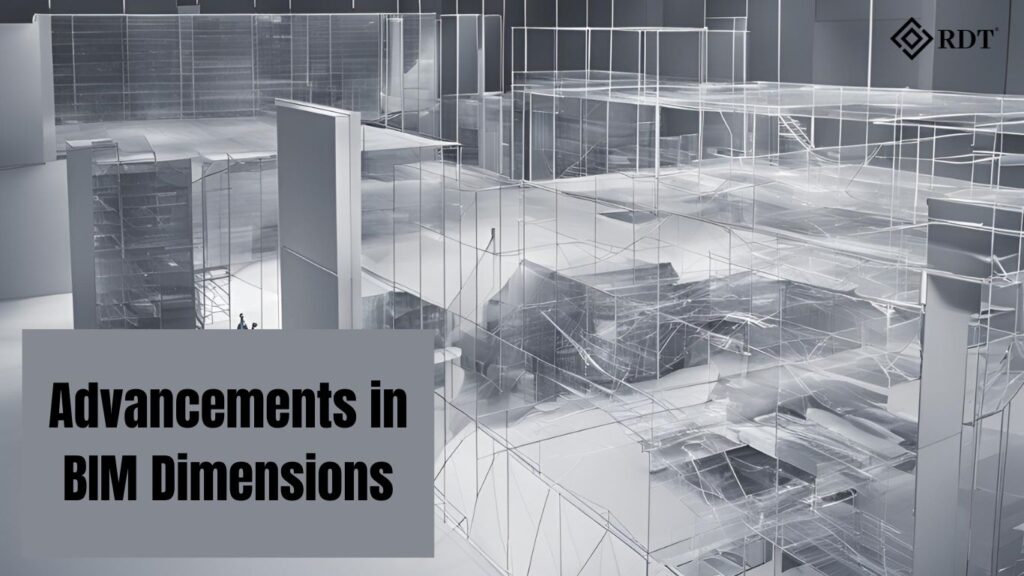Introduction
As the AEC (Architecture, Engineering, and Construction) industry continues to evolve, Building Information Modeling (BIM) remains at the forefront of innovation. In 2024, BIM solidified its role as a transformative tool for design, collaboration, and construction management. Looking ahead to 2025, new trends are set to further revolutionize the way projects are conceived and executed. From AI-powered tools to digital twins, these advancements promise to enhance efficiency, sustainability, and collaboration. At RDT Technology, we are committed to staying ahead of these trends to provide cutting-edge BIM services to our clients in the US and Canada. This article explores the most anticipated BIM trends for 2025.
Key BIM Trends to Watch in 2025
1. AI-Powered Design Automation
Artificial Intelligence (AI) will play a pivotal role in automating design processes:
- Smart Suggestions: AI tools will analyze project parameters and suggest optimal design solutions, streamlining the initial design phase.
- Automated Clash Detection: Machine learning algorithms will enhance accuracy in identifying and resolving clashes.
- Generative Design: AI-powered tools like Autodesk’s Spacemaker will create multiple design options based on predefined constraints, offering innovative solutions.
2. Integration of Digital Twins
Digital twin technology is set to become a standard feature in BIM workflows:
- Real-Time Monitoring: Digital twins will provide real-time data from construction sites, enabling better decision-making.
- Predictive Maintenance: Facility managers can use digital twins to predict and prevent maintenance issues.
- Lifecycle Management: From design to demolition, digital twins will offer insights throughout a building’s lifecycle.
3. Sustainability and Green Building Practices
With increasing focus on environmental impact, BIM will drive sustainability in construction:
- Energy Modeling: Tools like Revit’s Insight will help architects design energy-efficient buildings.
- Carbon Footprint Analysis: BIM platforms will calculate the environmental impact of materials and processes.
- Renewable Integration: BIM will support the integration of renewable energy systems into building designs.
4. Cloud-Based Collaboration
Cloud technology will further enhance team collaboration and data management:
- Real-Time Updates: Cloud platforms like BIM 360 will enable real-time collaboration among geographically dispersed teams.
- Data Accessibility: Stakeholders can access project data anytime, ensuring transparency and efficiency.
- Scalability: Cloud solutions will accommodate large datasets, making them ideal for complex projects.
Advancements in BIM Dimensions

1. 4D BIM: Time-Linked Planning
4D BIM will see significant advancements, linking schedules with 3D models:
- Phase-Wise Visualization: Teams can visualize construction phases in detail, improving planning and coordination.
- Delay Predictions: AI will analyze schedules to predict potential delays and suggest adjustments.
2. 5D BIM: Cost-Linked Data
5D BIM will enhance budget management and financial planning:
- Dynamic Cost Estimation: Real-time updates will provide accurate cost estimates throughout the project lifecycle.
- Value Engineering: Teams can assess the financial impact of design changes instantly.
3. 6D BIM: Facility Management
6D BIM will streamline facility management post-construction:
- Maintenance Schedules: Automated schedules will ensure timely maintenance.
- Asset Tracking: BIM will provide detailed information on building components for efficient management.
Emerging Technologies in BIM
1. Augmented and Virtual Reality (AR/VR)
Immersive technologies will redefine design presentations and client engagement:
- Interactive Walkthroughs: Clients can explore virtual spaces before construction begins.
- Design Validation: AR overlays will help teams validate designs on-site.
- Training Simulations: VR will be used for safety and operational training.
2. Blockchain for Data Security
Blockchain technology will enhance data security and integrity:
- Immutable Records: Blockchain will create tamper-proof records of design changes.
- Smart Contracts: Automated contracts will streamline payments and approvals.
3. IoT Integration
The Internet of Things (IoT) will bring real-time data to BIM models:
- Sensor Data Integration: IoT devices will feed live data into BIM models for accurate monitoring.
- Building Performance Analysis: Teams can analyze performance metrics to optimize building operations.
Challenges and Opportunities in 2025

Challenges
- Adoption Barriers: Smaller firms may struggle to adopt advanced BIM tools due to cost and training requirements.
- Data Overload: Managing large datasets from multiple sources can be overwhelming.
- Standardization Issues: Lack of uniform standards may hinder collaboration across platforms.
Opportunities
- Industry Leadership: Firms adopting advanced BIM practices will gain a competitive edge.
- Client Engagement: Immersive technologies will improve client satisfaction and collaboration.
- Sustainability Goals: BIM will play a crucial role in achieving green certifications and reducing environmental impact.
How RDT Technology is Preparing for 2025
At RDT Technology, we are dedicated to staying ahead of BIM trends to deliver exceptional value to our clients:
- AI Integration: Our team is leveraging AI tools to optimize design workflows and clash detection.
- Sustainable Practices: We prioritize green building strategies in our BIM processes.
- Client-Centric Solutions: Our focus remains on delivering tailored solutions that meet the unique needs of architects, contractors, and interior designers in the US and Canada.
Conclusion
BIM trends for 2025 promise to redefine the AEC industry, driving innovation, sustainability, and efficiency. From AI-powered automation to the integration of digital twins, these advancements will empower firms to deliver better projects while meeting client expectations. At RDT Technology, we are committed to helping our clients navigate this evolving landscape with cutting-edge BIM solutions.
To learn more about our BIM services, please contact us at https://rdttech.co/contact/.





